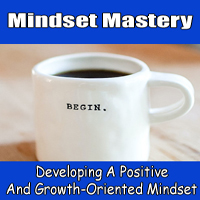



Introverted behavior is often misunderstood and sometimes mischaracterized. In a world that often celebrates extroverted qualities, it's essential to appreciate and recognize the unique behaviors and tendencies of introverts. In this article, we will explore the intricacies of introverted behavior, shedding light on what makes introverts tick and how their behavior enriches our society.
1. Preference For Solitude: Introverts find solace and renewal in solitary moments. They appreciate spending time alone, allowing them to recharge and reflect. This behavior is often mistaken for social withdrawal, but in reality, it's an essential aspect of their personality that enables deeper self-understanding and creativity.
2. Small, Intimate Gatherings: Introverts tend to favor small, intimate gatherings over large social events. They thrive in one-on-one or small group settings, where they can engage in more meaningful conversations and establish deeper connections. This behavior reflects their desire for quality interactions over quantity.
3. Thoughtful And Reflective: Introverts are known for their thoughtful and reflective nature. They carefully consider their words and actions, leading to well-considered decisions and a deeper understanding of themselves and the world around them. This behavior is a source of their wisdom and insight.
4. Selective Socialization: Introverts are selective about their social interactions. They prefer to invest their time and energy in building relationships with individuals who share their values and interests. This behavior leads to more authentic connections and fulfilling friendships.
5. Listening Skills: Introverts are exceptional listeners. They pay close attention to what others say and often provide a safe space for people to express themselves. This behavior fosters trust and meaningful communication in their relationships.
6. Avoidance Of Small Talk: Introverts tend to avoid superficial or small talk. They prefer engaging in deeper conversations about topics that matter to them. This behavior may come across as reserved, but it's driven by their desire for substance in interactions.
7. Sensory Sensitivity: Many introverts are sensitive to external stimuli, such as noise and bright lights. They may become overwhelmed by sensory input, which can lead to fatigue and the need to retreat to quieter environments. This behavior is a reflection of their heightened awareness of their surroundings.
8. Emotional Depth: Introverts often possess a rich emotional inner world. They experience their emotions intensely and may have a deeper understanding of their own feelings and the emotions of others. This behavior contributes to their empathy and ability to connect on a profound level.
9. Self-Reliance: Introverts are self-reliant and capable of working independently. They do not require constant external stimulation and can find fulfillment in their own thoughts and interests. This behavior makes them resilient and resourceful.
10. Introvert Communication Style: Introverts may communicate differently, often using written communication or non-verbal cues. This behavior allows them to express themselves more effectively and thoughtfully.
Introverted behavior is a complex and beautiful facet of human personality. It is marked by a preference for solitude, meaningful connections, deep reflection, selective socialization, empathetic listening, avoidance of small talk, sensory sensitivity, emotional depth, self-reliance, and a unique communication style. By understanding and appreciating these behaviors, we can create a more inclusive and supportive world that celebrates the diversity of human nature. Introverted behavior enriches our society by offering a different perspective and contributing to the depth and texture of our social interactions.


Regaining Control
 Understanding The Impact Of Procrastination-Inducing Activities: Procrastination-inducing activities are typically enjoyable and offer instant gratification, making them a compelling choice when we should be tackling important tasks. The allure of these activities can lead to missed deadlines, increased stress, and unfulfilled goals. To break free from their grip, it's essential to recognize the need for boundaries.
Understanding The Impact Of Procrastination-Inducing Activities: Procrastination-inducing activities are typically enjoyable and offer instant gratification, making them a compelling choice when we should be tackling important tasks. The allure of these activities can lead to missed deadlines, increased stress, and unfulfilled goals. To break free from their grip, it's essential to recognize the need for boundaries.
The Power Of Setting Boundaries: Setting boundaries is a powerful strategy for reclaiming your time and combating procrastination. It involves making a conscious decision to limit or restrict your engagement with procrastination-inducing activities. By doing so, you regain control over your schedule and can allocate your time more efficiently.
Strategies For Establishing Boundaries:
Define Your Priorities: The first step in setting boundaries is to define your priorities. Identify your most important tasks and goals, and acknowledge the time and attention they deserve.
Recognize Procrastination Triggers: Be aware of the procrastination-inducing activities that tend to sidetrack you. Is it social media, video games, or streaming platforms?
Unlocking Your Full Potential
 Positive Self-Image: Self-belief contributes to a positive self-image. When individuals believe in themselves, they are more likely to take care of their physical and mental well-being, which, in turn, reinforces their self-esteem.
Positive Self-Image: Self-belief contributes to a positive self-image. When individuals believe in themselves, they are more likely to take care of their physical and mental well-being, which, in turn, reinforces their self-esteem.
Risk-Taking: Self-belief encourages calculated risk-taking. It allows individuals to step out of their comfort zones, explore new opportunities, and take on challenges that may have seemed daunting otherwise.
Building Self-Belief
Positive Self-Talk: The way you talk to yourself matters. Replace self-criticism with self-encouragement. Acknowledge your accomplishments and focus on your strengths.
Set Realistic Goals: Start with achievable goals and gradually work your way up. Each successful achievement will boost your self-belief.
Overcome Fear Of Failure: Understand that failure is a part of life. Rather than fearing it, see it as a valuable learning experience. Embrace failures as opportunities for growth.
Learn From Experience: Reflect on your past accomplishments and challenges. Recognize how your self-belief has played a role in your successes.
Surround Yourself With Positivity: Spend time with people who support and uplift you. Negative influences can erode self-belief, so choose your company wisely.
Continuous Learning: Invest in your personal growth and skills. Expanding your knowledge and abilities can boost your confidence.
The Dangers Of Low Self-Belief
Low self-belief can have significant negative consequences. It can lead to self-doubt, anxiety, and a fear of taking risks. This, in turn, can result in missed opportunities and unfulfilled potential.
A Path To Personal Growth And Success
 The Importance Of Resilience: Resilience is the ability to bounce back from adversity. It's a vital skill that helps us navigate life's hurdles. Resilient individuals are better equipped to handle stress, setbacks, and unforeseen circumstances. Building resilience is crucial for overcoming challenges effectively.
The Importance Of Resilience: Resilience is the ability to bounce back from adversity. It's a vital skill that helps us navigate life's hurdles. Resilient individuals are better equipped to handle stress, setbacks, and unforeseen circumstances. Building resilience is crucial for overcoming challenges effectively.
Strategies For Overcoming Challenges:
Positive Mindset: Cultivate a positive outlook. See challenges as opportunities for growth rather than insurmountable obstacles. A positive mindset can empower you to face challenges with confidence.
Break It Down: When faced with a significant challenge, break it down into smaller, more manageable steps. This can make the situation feel less overwhelming and allow you to focus on one aspect at a time.
Seek Support: Don't be afraid to ask for help. Friends, family, mentors, or support groups can provide emotional support and valuable insights.
Learn From Failure: Failure is a part of life, but it also offers valuable lessons. Use setbacks as opportunities to learn, adapt, and improve.
Stay Flexible: Be open to change and willing to adapt your strategies as needed. Sometimes, the solution to a challenge may require a shift in your approach.
Personal Growth Through Challenges: Challenges are often catalysts for personal growth. When you confront difficulties and find ways to overcome them, you develop valuable life skills, such as problem-solving, decision-making, and perseverance. Moreover, you gain a deeper understanding of your own strengths and capabilities.
Increased Self-Confidence: Overcoming challenges can boost your self-confidence. Each successful encounter with a challenge reinforces the belief in your ability to handle adversity. This increased self-assurance can be applied to future challenges, allowing you to face them with greater poise and determination.






A Journey To Health And Well-Being
 Defining Wellness
Defining Wellness
Wellness is a holistic concept that encompasses physical, mental, emotional, and social well-being. It is not merely the absence of illness but the presence of vitality and balance. Pursuing wellness goals involves striving for optimal health, cultivating self-awareness, and nurturing a harmonious life.
The Power Of Goals
Setting wellness goals is a potent means of channeling your efforts toward self-improvement. Goals give direction, motivation, and a clear path for achieving personal growth and well-being. Whether it's aiming for a healthier body, a calmer mind, or more fulfilling relationships, wellness goals provide a sense of purpose.
Key Components Of Wellness Goals
Physical Health: Goals related to physical well-being can encompass areas like nutrition, fitness, sleep, and preventive healthcare. Setting goals for regular exercise, balanced nutrition, and maintaining a healthy weight are common examples.
Mental Health: Wellness goals related to mental health may focus on stress management, cultivating resilience, and practicing mindfulness. These goals can help individuals cope with life's challenges and build emotional strength.
The Path To Success And Fulfillment
 Professional endeavors encompass a wide range of goals and ambitions in the working world. These pursuits can include building a successful career, starting a business, pursuing a specific profession, or even advancing within an organization. Each endeavor is unique, but they all share a common thread: the desire to achieve success and personal fulfillment in the professional realm.
Professional endeavors encompass a wide range of goals and ambitions in the working world. These pursuits can include building a successful career, starting a business, pursuing a specific profession, or even advancing within an organization. Each endeavor is unique, but they all share a common thread: the desire to achieve success and personal fulfillment in the professional realm.
The pursuit of professional endeavors often involves setting clear and achievable goals. These goals serve as the roadmap to guide your efforts and provide a sense of direction in your career. By defining your objectives, you can measure your progress and make informed decisions about the steps needed to reach your desired destination.
An important aspect of professional endeavors is the willingness to embrace challenges and adversity. As you strive for success, you are likely to encounter obstacles and setbacks. These challenges are not roadblocks but opportunities for personal and professional growth. Each hurdle you overcome adds to your experience and resilience.
Networking and building meaningful professional relationships are also crucial in the world of professional endeavors. Connections with mentors, colleagues, and peers can provide guidance, support, and valuable insights into your chosen field. These relationships can open doors to new opportunities and expand your knowledge.
Continuous learning is fundamental to success in professional endeavors. The world is constantly evolving, and staying updated with the latest trends, technologies, and industry developments is essential. Pursuing further education, attending workshops, and seeking out opportunities for skill enhancement can give you a competitive edge.
Professional endeavors can be deeply fulfilling when they align with your passions and values. Consider what truly motivates you and fuels your enthusiasm in your chosen field. When your professional pursuits align with your personal values, work becomes more than a job; it becomes a source of personal satisfaction and purpose.